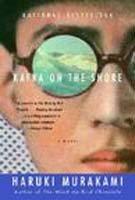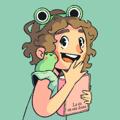LucieBulle reviewed Kafka sur le rivage by Haruki Murakami
un voyage initiatique rempli de mystère
5 stars
Wouaaaah ce bouquin m'a vraiment emmené loin très loin, dans un autre monde même. J'ai adoré le rythme, premièrement. Dès qu'on commence à s'ennuyer, on est pris de court par un événement inattendu. Je suis allée de surprises en surprises. Ce roman est très philosophie, on y questionne beaucoup de concepts telles que le destin, la responsabilité, la mort, l'amour aussi.
Je n'ai jamais lu kafka, peut-être que cela aurait pu m'aider à répondre à quelques interrogations qui subsistent après ma lecture. En effet, il y a des événements que je ne m'expliquent pas... le mystérieux langage des chats, le portail de la pierre, l'enquête du début du livre, la forêt labyrinthe, etc. Tant de choses qui trottent encore dans ma tête et qui font aussi le charme de cette aventure magique.
La plume est d'une poésie sans fin et les personnages sont si beaux, si intéressants, si complexes ! …
Wouaaaah ce bouquin m'a vraiment emmené loin très loin, dans un autre monde même. J'ai adoré le rythme, premièrement. Dès qu'on commence à s'ennuyer, on est pris de court par un événement inattendu. Je suis allée de surprises en surprises. Ce roman est très philosophie, on y questionne beaucoup de concepts telles que le destin, la responsabilité, la mort, l'amour aussi.
Je n'ai jamais lu kafka, peut-être que cela aurait pu m'aider à répondre à quelques interrogations qui subsistent après ma lecture. En effet, il y a des événements que je ne m'expliquent pas... le mystérieux langage des chats, le portail de la pierre, l'enquête du début du livre, la forêt labyrinthe, etc. Tant de choses qui trottent encore dans ma tête et qui font aussi le charme de cette aventure magique.
La plume est d'une poésie sans fin et les personnages sont si beaux, si intéressants, si complexes ! On passe du joli au glauque en quelques mots et c'est aussi très agréable de se laisser ballotter de scène en scène. J'ai adoré mon voyage même si j'aurais souhaité mieux le décoder. Peut-être vais-je comprendre des choses après coup ?


